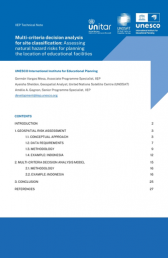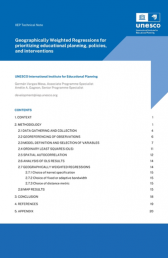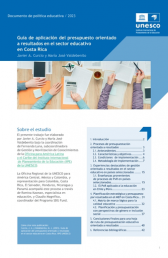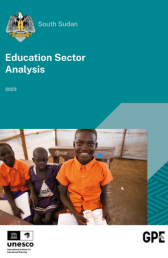
Languages
English, French
Series
Fundamentals of educational planning, 91
Year
2008
Pages
140 p.
ISBN
978-92-803-1318-5
Level
Adult and lifelong learning
About the publication
The fourth goal set by the Dakar Forum on Education for All (EFA) in 2000 aimed to "achieve a 50 per cent improvement in levels of adult literacy by 2015, especially for women, and equitable access to basic and continuing education for all adults" . However, the EFA Global Monitoring Report for 2006 estimated that 50 countries were at risk or serious risk of not achieving this goal. Despite a century of experience in running adult literacy programmes, the empirical comparative evidence on what makes for the most effective strategies, teaching methods and learning materials remains surprisingly scarce. This paper therefore uses what hard evidence there is to discuss the options that education and curriculum planners can consider, whether they are governmental or non-governmental. Starting from the operational meaning of 'literacy' and the implications of a human right to literacy, this booklet looks at what can realistically be expected from a literacy project and explores the different options available to education policy-makers and national development planners to ensure that their own countries do achieve this literacy goal.









